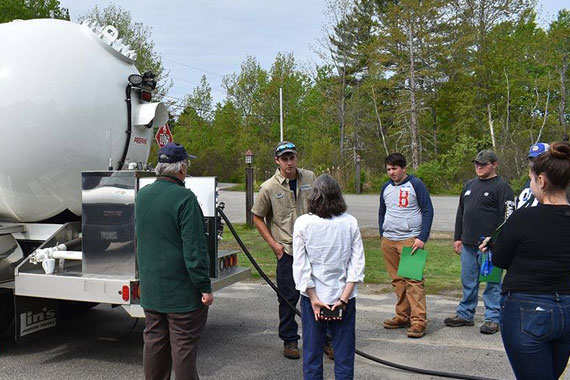Effective Training Techniques for Propane Companies

Taking the time and effort to train employees in the propane industry is essential for both safety and efficiency. Here are some Effective Training Techniques for ensuring that training sticks, along with additional suggestions for successfully implementing these strategies.
Utilize Hands-On Learning
Hands-on training is crucial in the propane industry. Employees learn best by doing, so provide opportunities to practice skills in real-world scenarios. For example, set up mock installations and emergency response drills. This approach helps employees build confidence and competence in handling propane safely. Encourage them to troubleshoot and solve problems on their own, under supervision, to mimic real-life situations.
Offer Regular Refreshers
Conduct regular refresher courses to keep skills sharp. Frequent, short training sessions help reinforce knowledge and ensure employees stay up-to-date with safety protocols. For instance, hold monthly safety meetings where you review key procedures and discuss any incidents that may have occurred – large or small – highlighting lessons learned. This keeps safety top of mind and allows for continuous improvement.
Use Visual Aids
Incorporate visual aids such as videos, diagrams, and demonstrations. Visual learning helps employees better understand and remember procedures. Use videos to demonstrate proper handling techniques and safety procedures. Diagrams can be particularly useful for showing the internal workings of propane systems. Create a library of visual aids that employees can access at any time for quick refreshers.
Encourage Mentorship
Pair new employees with experienced mentors. This allows for personalized guidance and immediate feedback, fostering a supportive learning environment. Mentors can provide insights and tips that are not covered in manuals, sharing their practical experiences. Regular check-ins between mentors and mentees can track progress and address any concerns, questions, or gaps in knowledge.
Provide Clear Documentation
Offer clear, concise training manuals and guides. Easy-to-understand documentation serves as a reference for employees to review as needed. Make sure these documents are well-organized and cover all essential topics, including emergency procedures, daily operational protocols, and maintenance schedules. Update these materials regularly to reflect any changes in regulations or company policies.
Employ Interactive Sessions
Make training interactive with quizzes, group discussions, and hands-on activities. Actively engaging employees helps to reinforce learning and retention. For example, after a training session on safety protocols, you could conduct a quiz to test their understanding. Group discussions can help employees share their insights and learn from each other’s experiences. Hands-on activities, such as practicing emergency shutdown procedures, ensure that employees are able to apply what they’ve learned.
Additional Tips for Effective Training
• Customized Training Programs: Tailor training programs to meet the specific needs of different roles within the company. For instance, delivery drivers may need more focused training on safe driving practices and customer interaction, while technicians might need in-depth technical training.
• Feedback Loop: Create a feedback loop where employees can provide input on the training programs. This can help identify areas for improvement and ensure the training remains relevant and effective.
• Recognition and Rewards: Recognize and reward employees who excel in their training. This can motivate others to take their training seriously and strive for excellence.
Effective training techniques will ensure that all employees are well-taught and confident in their roles, leading to a safer and more efficient workplace. Incorporating these key practices into your training program will help your propane company maintain high standards and continuously improve its operations.
















